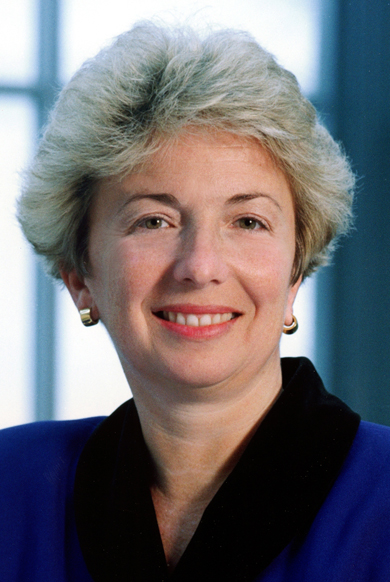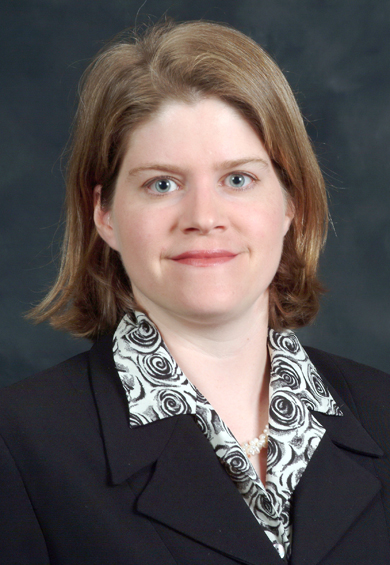Purdue Discovery Lecture will examine safety, communication issues on major oil spills
WEST LAFAYETTE, Ind. - Award-winning NPR correspondent Richard Harris, global industry safety expert Deborah Grubbe and congressional staffer Ana Unruh Cohen will speak Oct. 7 at Purdue University as part of a Discovery Lecture focused on safety and communication issues surrounding major oil spills.
Harris, a science reporter with NPR since 1986, Grubbe, a Purdue alumna and president of Operations and Safety Solutions LLC, and Unruh Cohen, U.S. Rep. Edward Markey's deputy staff director of the Select Committee on Energy Independence and Global Warming, will give their talks from 3-4:30 p.m. in Discovery Park's Burton D. Morgan Center for Entrepreneurship, Room 121.
The event is free and open to the public, but registration is encouraged by going online to https://oilspilldls.eventbrite.com/
"No news story in recent years captured the world's attention like the massive Deepwater Horizon oil spill in the Gulf of Mexico with its environmental and economic consequences," said event co-organizer John Bickham, director of Discovery Park's Center for the Environment.
The Discovery Lecture Series, offered as part of Purdue's Green Week activities and the Purdue Oil Spill Community research effort, will include a panel discussion and a question-and-answer session featuring Purdue mechanical engineering professor Steven Wereley and Bickham.
"This Discovery Lecture will feature how the partnership between a journalist and scientists ended up affecting the government's approach and response to what we now recognize as a spill of historic proportions," Bickham said. "At the same time, the environmental damage from an oil spill can be severe. What is sometimes not considered is the human toll on the workers deployed to clean up the spill. Dr. Grubbe's talk will focus on the larger issues of safety and health during the cleanup."
Sponsors of the Discovery Lecture Series event are Discovery Park, the Lilly Endowment, Center for the Environment, Energy Center, Purdue's Global Sustainability Initiative and the Office of the Provost.
On May 12, Harris was the first to report that the U.S. government and BP Oil were underestimating the size of the Deepwater Horizon spill in the Gulf of Mexico. Harris had contacted Wereley to see if the mechanical engineering professor could use a research tool he had developed to analyze the initial 30-second video clip of oil gushing from the 21.5-inch pipe.
Wereley, an expert in a technique called particle image velocimetry (PIV), spent the afternoon of May 11 creating freeze-frame shots from the video and analyzed the data to compute how fast oil was flowing from the pipe.
Using the area of the pipe and the speed of the oil flow, he concluded that 56,000-84,000 barrels of oil and gas had been leaking daily into the Gulf since the Deepwater Horizon explosion on April 20 that killed 11 workers. That flow rate was nearly 10 times higher than U.S. government and BP estimates issued at that time. To help establish a more precise account of how much oil spilled into the Gulf from this accident, Wereley was appointed to the U.S. government-led Flow Rate Technical Group.
Now considered the worst spill in U.S. history, 4.1 million barrels of oil - or 172 million gallons - spewed into the Gulf off the coast of Louisiana from the Deepwater Horizon. That is roughly 15 times more than the Exxon Valdez accident in 1989. BP's oil well, known as the Macondo well, was capped and shut down on Sept. 19, five months after the explosion
As a correspondent for NPR, Harris has reported from Timbuktu, the South Pole, the Galapagos Islands, Beijing during the SARS epidemic, the center of Greenland, the Amazon rain forest and the foot of Mount Kilimanjaro for a story about tuberculosis.
Harris has received numerous honors for his reporting, including the Sagan Award from the Council of Scientific Society Presidents and the American Medical Writers Association's Walter C. Alvarez Memorial Award. He shared a Peabody Award for reporting on the tobacco industry. A California native, Harris earned a bachelor’s degree in biology from the University of California at Santa Cruz.
Before launching Chadds Ford, Pa.-based Operations and Safety Solutions, Grubbe was vice president of Group Safety for BP PLC, where she provided global safety leadership in all business areas: exploration and production, refining and marketing, gas, solar and renewables.
Grubbe, a member of the NASA Aerospace Safety Advisory Panel, also has held executive positions at DuPont in safety, operations and engineering. As part of the National Research Council, she also advised the U.S. Army on the demilitarization of the U.S. chemical weapons stockpile. The suburban Chicago native earned a bachelor's degree in chemical engineering from Purdue and was a Winston Churchill Fellow at the University of Cambridge, England.
Unruh Cohen, a staff member for U.S. Rep. Markey, D-Mass., has worked on a variety of energy and environmental issues, both on and off Capitol Hill, during her career. She also was the first director of environmental policy at the Center for American Progress. A Rhodes Scholar, Unruh Cohen received a bachelor's degree in chemistry from Trinity University and a doctorate in earth sciences from Oxford University.
A $1 million grant from the Lilly Endowment helped Purdue and Discovery Park create the Discovery Lecture Series to bring prominent speakers to campus.
Discovery Park, which is located on the southwestern edge of Purdue's West Lafayette campus, is a $550 million hub for interdisciplinary research and is home to major centers focusing on everything from biosciences, nanotechnology and entrepreneurship to oncological sciences, homeland and cybersecurity and health-care engineering.
Writer: Phillip Fiorini, 765-496-3133, pfiorini@purdue.edu
Sources: John Bickham, 765-494-5146, bickham@purdue.edu
Deborah Grubbe, 302-530-1561, deb.grubbe@opsandss.com
Richard Harris, 202-513-2786, rharris@npr.org
Steven Wereley, 765-494-5624, wereley@purdue.edu
Related web site:
Birck Nanotechnology Center



